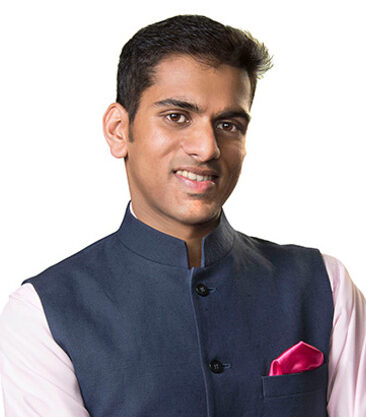The Indian oral care market is experiencing a period of significant transformation, driven by changing consumer behaviors, technological advancements, and evolving product demands. According to Mintel’s latest research, the market faces several critical challenges and opportunities that are reshaping its landscape. The findings highlight that a substantial portion of the population brushes their teeth only once a day, a trend influenced by various factors including flavor monotony and lack of engagement. Additionally, the sector is witnessing a surge in toothpaste innovations, with a notable shift towards premium products and novel ingredients.
In this context, CMPL Industry Insight has engaged with leading brands to understand their strategies for addressing these challenges and capitalizing on emerging trends. Our aim is to shed light on how these brands are innovating to meet consumer expectations and navigate the complexities of the market. Through detailed interviews and insights from key industry players, we explore the approaches and innovations that are driving change in the Indian oral care sector.
CURRENT MARKET CHALLENGES
Mintel’s latest research reveals several pressing challenges and trends within the Indian oral care market:
Low Brushing Frequency: 59% of Indian consumers brush their teeth only once a day, with significant variations across different demographics.
Innovation Surge: In 2023, more than 51% of new product launches were toothpaste-related, reflecting a strong trend towards innovation.
Growing Demand for Premium and Novel Flavors: There is increasing consumer interest in products featuring unique flavors, whitening agents, herbal ingredients, and probiotics.
WE SOUGHT TO DELVE INTO KEY AREAS IMPACTING THE MARKET:
Addressing Low Brushing Frequency: How are brands tackling the challenge of low brushing frequency among consumers, particularly men, who brush only once a day?
Recent Innovations: With over 51% of new product launches in oral care being toothpaste-related, what standout innovations have brands introduced?
Social Media Engagement: In a landscape where terms like ‘oral care’ and ‘toothpaste’ generate significant social media buzz, how are brands leveraging these platforms to engage and inform consumers?
Premiumization Strategy: As the market sees a trend towards premium products, how are brands balancing premium pricing with consumer value?
Incorporating Natural Ingredients: How are brands incorporating natural ingredients, vitamins, and probiotics to meet the demands of health-conscious consumers?
Flavor Innovation: Given the consumer willingness to pay more for novel flavors, what new flavors or ingredients are brands introducing to capture interest?
To gain insights into how brands are navigating these challenges, CMPL Industry Insight spoke with prominent figures in the oral care sector. Their perspectives reveal diverse strategies and innovative solutions.

Co-Founders | Jatan Bawa and Tushar Khurana
Perfora is tackling the challenge of low brushing frequency with a range of innovative products designed to make brushing more engaging. “We introduced our morning and night toothpastes, ‘Awake’ and ‘Unwind,’ to address the monotony of using the same flavor throughout the day,” explains Jatan Bawa. The ‘Awake’ toothpaste features a zesty lemon mint flavor, while ‘Unwind’ offers a soothing lavender rose profile, catering to different times of the day.
Perfora’s electric toothbrushes are also designed to improve brushing habits. “Our toothbrushes come with a two-minute automated timer and a buzzer every 30 seconds to ensure thorough brushing,” adds Tushar Khurana. The brand’s emphasis on diverse flavor profiles and innovative products, such as their purple teeth whitening serum and water-based mouth sprays, reflects their commitment to making oral care exciting and effective.
Recent innovations include the introduction of a 24K Teeth Whitening Gold Serum and a range of sonic toothbrushes with multiple cleaning modes. “Our products, like the purple teeth whitening serum and activated charcoal mouthwash, are designed to deliver high performance while remaining affordable,” says Bawa. Perfora’s approach to flavor innovation and premiumization ensures that their products stand out in a competitive market.

Binit Kumar | Category Head – Oral Care
Dabur addresses the challenge of low brushing frequency through a multi-faceted approach. “Our Dabur Red Paste highlights seven key dental problems through byte-sized videos, raising awareness and encouraging preventive action,” shares Binit Kumar. The brand also engages in on-ground initiatives, such as setting up brushing zones during public events and dental check-up camps in modern trade outlets.
Dabur’s recent innovations include the Dabur Herb’l Activated Charcoal toothpaste, which is clinically proven to whiten teeth by one shade in one week. The brand also created excitement in the whitening category with a limited-edition Darth Vader toothpaste launched on Star Wars Day. “Our moment marketing campaigns, like the No Tobacco Day initiative, drive awareness about the benefits of our products while engaging with consumers through various national events and influencer collaborations,” Kumar explains.
In response to the premiumization trend, Dabur focuses on delivering strong clinical claims and effective solutions. “Premiumization must be coupled with a strong value offering,” Kumar emphasizes. Dabur’s approach ensures that their premium products, such as the Herb’l Activated Charcoal toothpaste, provide tangible benefits to consumers.
INVESTOR PERSPECTIVE

V3 Ventures
Understanding the broader market perspective is crucial for contextualizing the strategic responses of brands. Arjun Vaidya, from V3 Ventures, provides valuable insights into the financial and growth opportunities within the sector. “The Indian oral care market, currently valued at $2 billion, is ripe with opportunities as it transitions from traditional dominance by established brands. Consumers, particularly Gen Z, are seeking unique brands and innovative products. This ‘not your parents’ brands’ concept is gaining traction, driven by younger consumers who value health and wellness and are influenced by digital marketing,” Vaidya notes.
He adds, “Emerging categories such as electric toothbrushes and water flossers are witnessing rapid growth, with innovations in toothpaste featuring natural ingredients and specialized benefits also capturing significant attention. Brands like Perfora are well-positioned to leverage these trends with modern, effective solutions that cater to the evolving preferences of today’s consumers. By tapping into the demand for fresh and distinctive oral care options, these new entrants are set to make a significant impact.”
THE ROLE OF CONTRACT MANUFACTURING
As brands navigate these market shifts, the role of contract manufacturers becomes increasingly significant. Contract manufacturing provides a critical backbone for scaling production and enabling innovation.
Contract manufacturers offer expertise in formulation, production, and packaging, allowing brands to focus on their core competencies while managing production efficiently. By partnering with specialized manufacturers, brands can access advanced technology, maintain high-quality standards, and control costs effectively. This collaboration is essential for bringing innovative products to market and responding to evolving consumer demands.
For instance, contract manufacturers can help brands scale up production rapidly, adapt to new trends, and meet stringent quality standards. Their expertise in developing and managing complex supply chains ensures that brands can launch new products efficiently and sustainably, which is crucial in a market that demands both innovation and reliability.
CONCLUSION
The Indian oral care market is on the cusp of transformation. As consumers demand more from their oral care products, the market presents significant opportunities for brands, manufacturers, and investors. Brands like Dabur and Perfora are innovating to meet these demands, while contract manufacturers play a pivotal role in bringing these ideas to life. By prioritizing quality, sustainability, and flexibility, manufacturers can help brands scale efficiently while maintaining high standards.
The future of the oral care industry will depend on strong partnerships between brands, contract manufacturers, and investors as they collaborate to drive innovation, create engaging consumer experiences, and capitalize on the growing premium segment in India.


